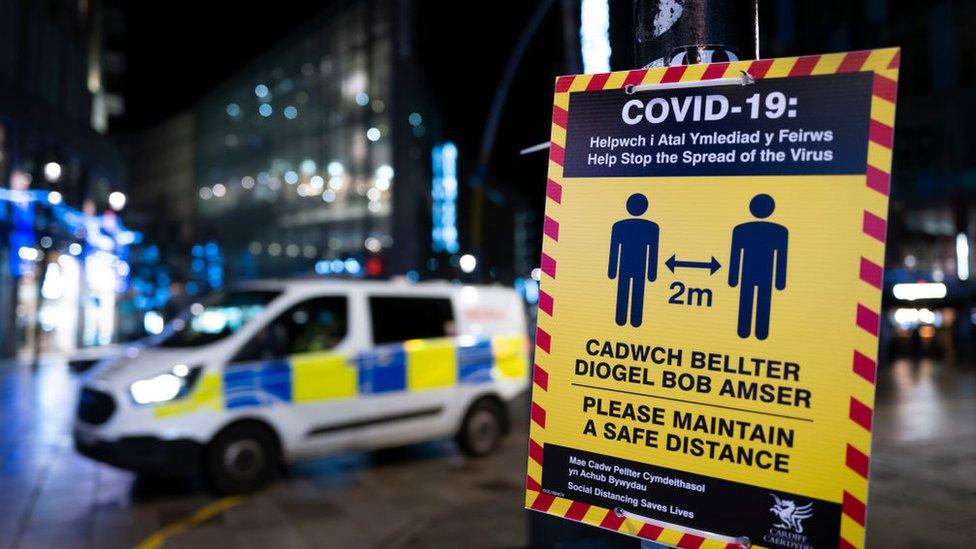Covid vaccine priority: Police officers 'just asking to be safe'
- Published
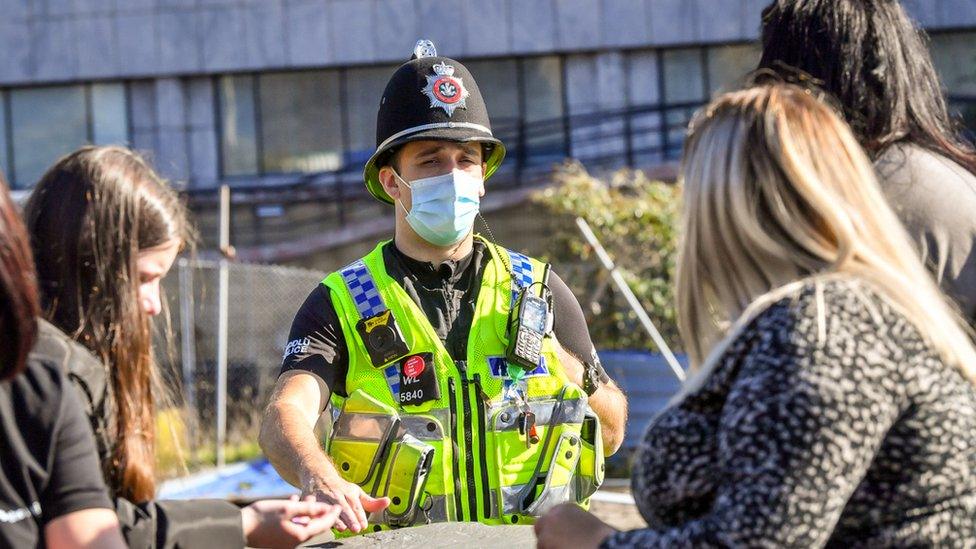
Police in Wales have had to enforce sometimes "unpopular" Covid rules, say officers
Front-line police officers should have been prioritised for the Covid vaccine, according to the head of one force.
Chief Constable Pam Kelly said it has been one of her biggest concerns during the crisis.
The Gwent Police boss agreed that NHS staff and the vulnerable should come first, but she wanted greater protection for her staff.
The Welsh government said there is insufficient evidence to support vaccination by occupation.
Police officers often attend the same scenes as health workers but are the only ones not vaccinated, said Mrs Kelly.
"We salute NHS staff, they've been outstanding. But often you will get an ambulance worker, health worker and police officer at the same scene," she said.
"When there's a violent person, police officers are there trying to protect the health workers - yet it's the police officer that's not vaccinated.
"It's a real concern for me. It's all about having enough emergency workers to respond to 999 and 101 calls and the vaccination for police officers would have been a really strong voice in saying we're grateful for what you've done.
"They're not asking for money - all we're asking for is for our officers to be safe."
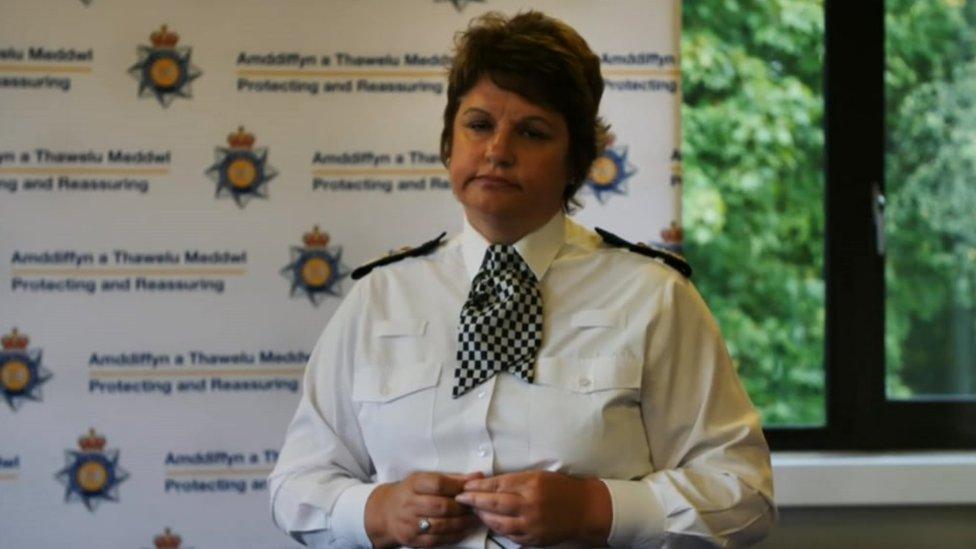
Chief Constable Pam Kelly wants greater protection from Covid for officers
Police protection
More than 4,000 emergency workers have been assaulted in Wales over the last 20 months, she added.
"Sometimes Covid has been used as a weapon. I understand without question the need for the vulnerable to be vaccinated, but at this stage where the wider community is being vaccinated, I feel very strongly that front-line policing should be vaccinated," she said.
Mrs Kelly added that out of a 1,400 strong workforce, just 140 have had the vaccine - based purely on their age or vulnerability.
But as crime dropped around 15%, demand for policing increased significantly, she said.

The role of the police has changed during the pandemic, even checking where people are walking and with whom
In the neighbouring South Wales Police force, Chief Constable Jeremy Vaughan is equally concerned about the impact the pandemic has had on staff.
"It's taken its toll. On a weekly basis I'm texting somebody who is poorly, somebody who is in hospital, I've visited families, I've been to a number of funerals. We really care about their wellbeing and welfare," he said.
Police officers "absolutely" should be prioritised for Covid vaccines, Temporary Chief Constable of Dyfed Powys Police Claire Parmenter said.
She told Claire Summers on BBC Radio Wales: "I'm pleased that in recent weeks officers have started to get offered reserve vaccines where, at the end of the day, there are some vaccines leftover.
"But it's critical that we continue to support officers for the vaccination because they have no choice but to put themselves at risk."
Pandemic and protest
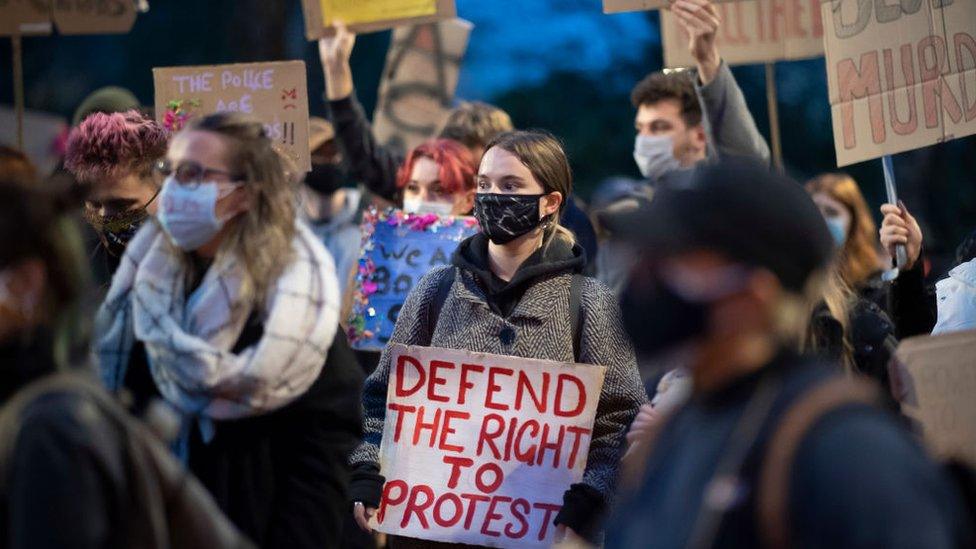
Many have opposed legislation giving police greater power to crack down on protests
As a border force, different rules in England and Wales added to the confusing picture.
Initially the focus remained on engaging, explaining and encouraging compliance, but enforcement has increasingly been a factor.
In the last 12 months the role of policing changed significantly. While crime remained a priority, officers were asked to step in and police far more of our lives - right down to where we took a walk and with whom.
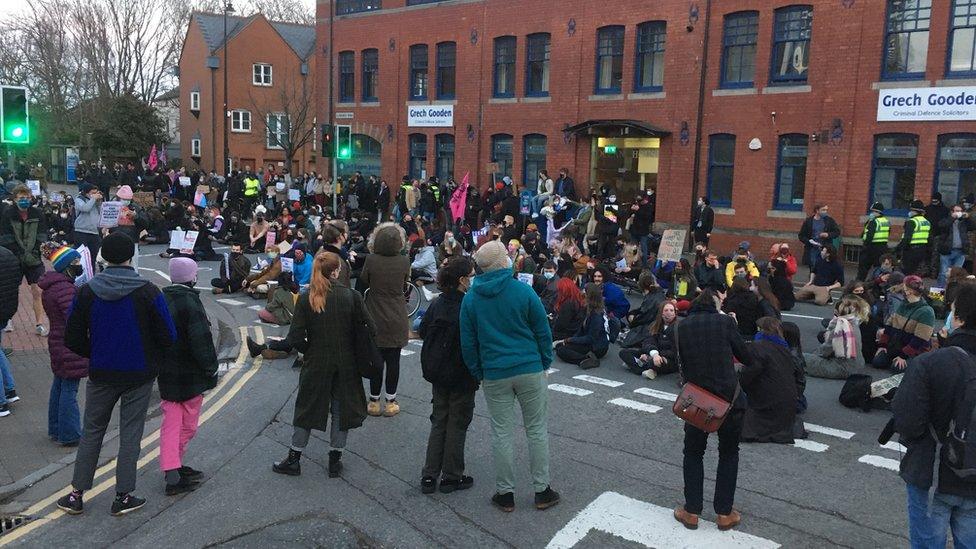
People in Cardiff protested in January over the death of Mahmoud Hassan, who died after being released from police custody
Team that with protests - and a national focus on the way police have handled protests in a pandemic, from Black Lives Matter to women's safety demonstrations following the murder of Sarah Everard.
Has it impacted their relationship with their community?
"I can't thank communities enough for the way they've worked with us," said Mrs Kelly, who was interviewed before officers in Bristol were injured during protests on Monday.
"I don't want to become the Covid police - and we've carried on tackling serious organised crime with vigour - but ultimately we have seen some fragility in terms of the relationships between policing and the community.
"We've had about 73 protests during the Covid crisis and protests are very difficult to police."
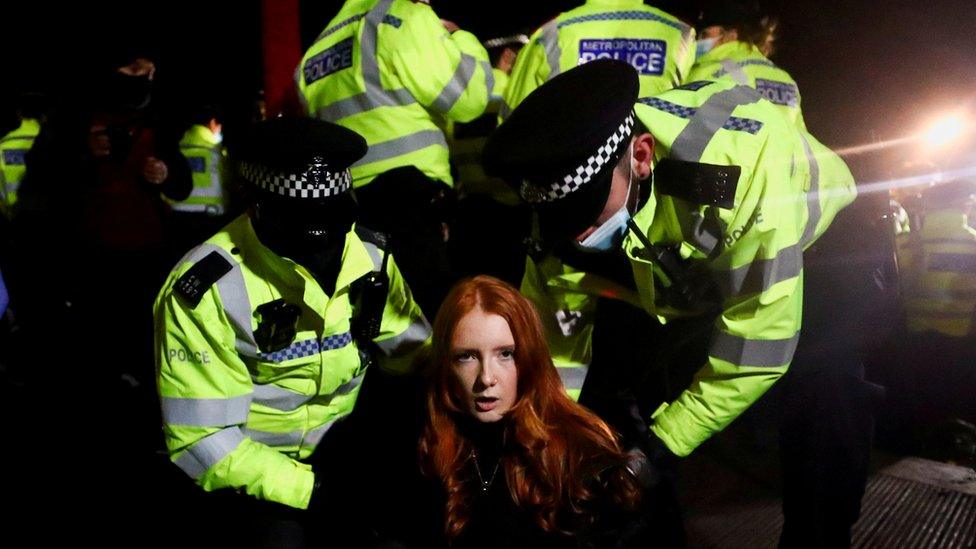
Images of Patsy Stevenson being detained by police at a vigil for Sarah Everard in London were shared widely
She said they had worked with protesters - some had moved online, others were done in a Covid-secure way.
Her south Wales counterpart Mr Vaughan, who was also interviewed before the Bristol protests, added people have the right to be heard - but the rules have changed in Covid times.
"People want their voices to be heard - and people are protesting on some really important issues," he said.
"In ordinary times the police would work really hard to allow those voices to be heard- to facilitate those protests, but these aren't ordinary times. They're extraordinary times.
"There comes a point after a few days of protest, and we've warned them on a number of times, that we need to take action.
"That's not for one second calling into question the right of individual's voices to be heard, or indeed the things that they want to talk about which are extremely important things, but we're being called to help protect people from a global pandemic."
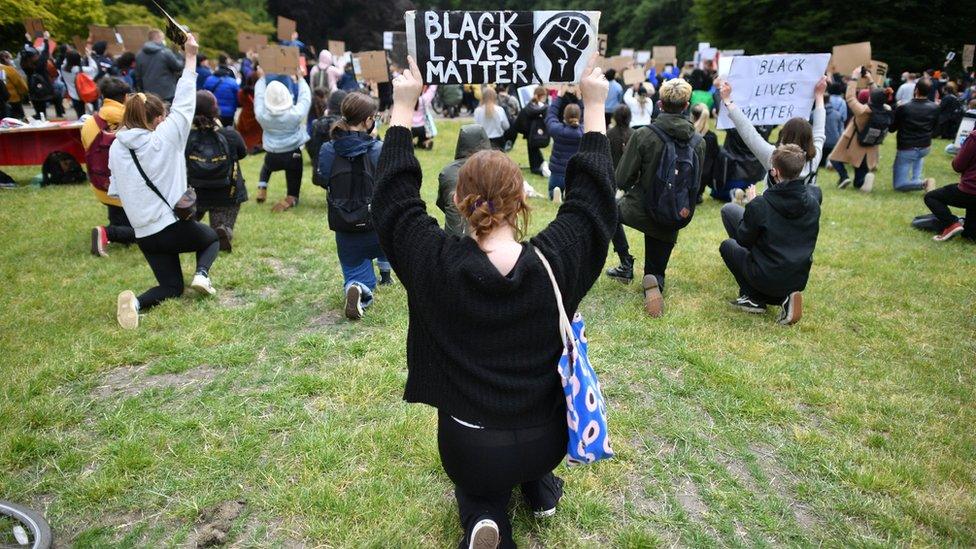
Thousands of people joined anti-racism protests across Wales last summer
The Welsh government thanked officers for doing a "fantastic job" enforcing coronavirus regulations.
However a spokesman said it was following the advice of the Joint Committee on Vaccination and Immunisation (JCVI) to vaccinate according to age, as that "remains the strongest factor" linked to deaths and hospitalisations from the virus.
"The JCVI has looked at prioritisation by occupation but found there wasn't sufficient evidence for this," he added.
"It has advised that the complexity of delivering this approach would slow down the pace of the vaccination roll-out."
- Published14 June 2020
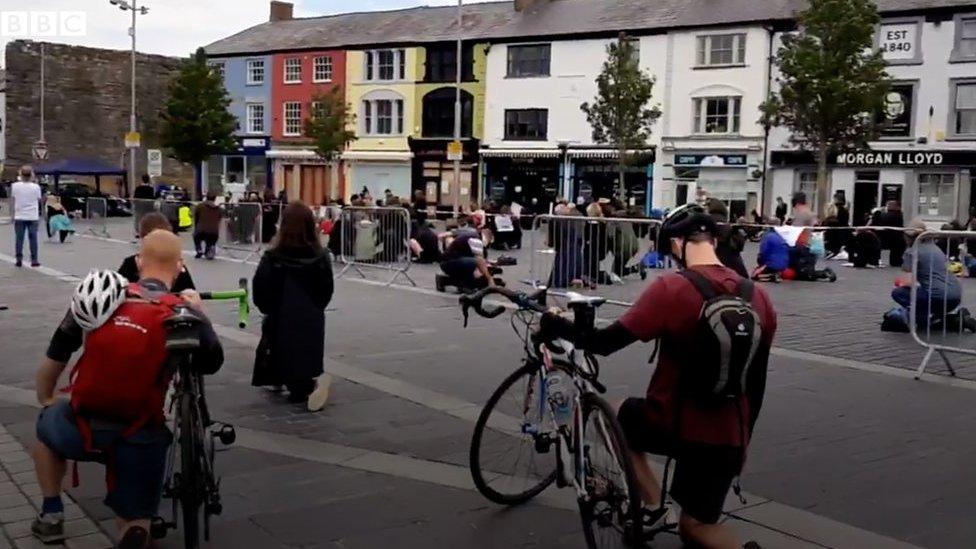
- Published7 June 2020
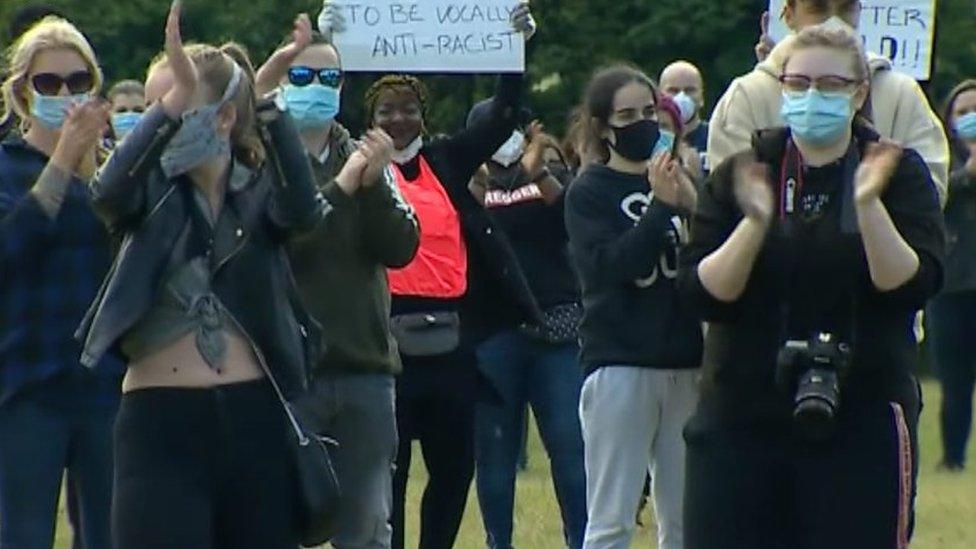
- Published20 December 2020
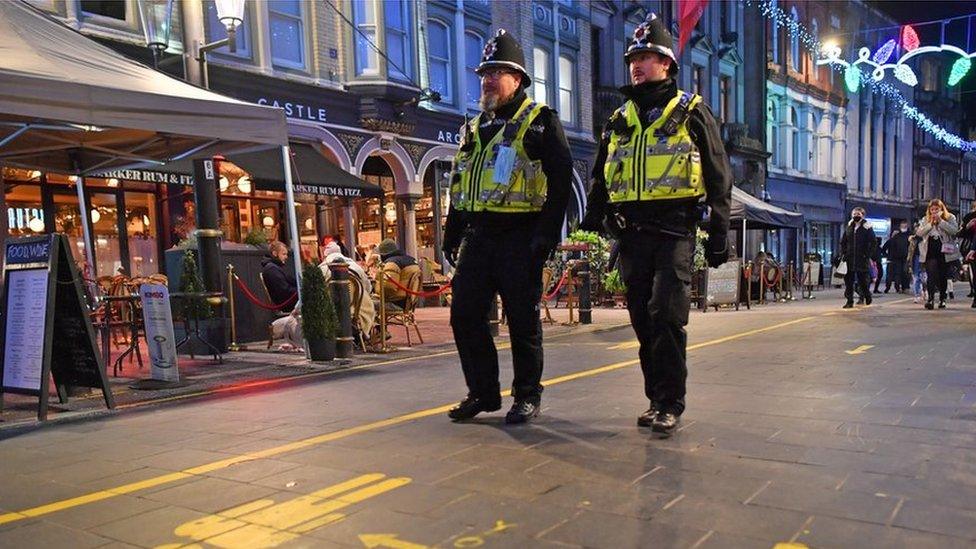
- Published15 March 2021
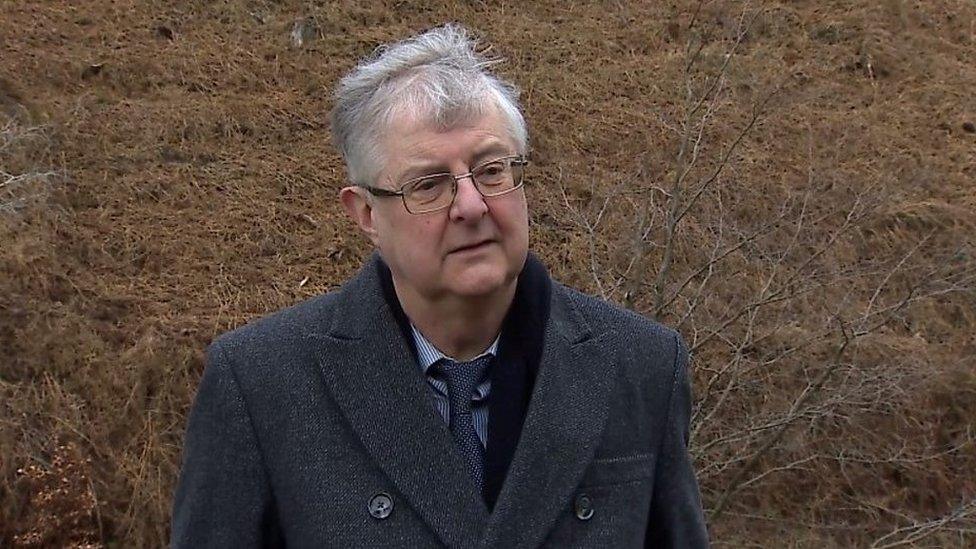
- Published15 March 2021
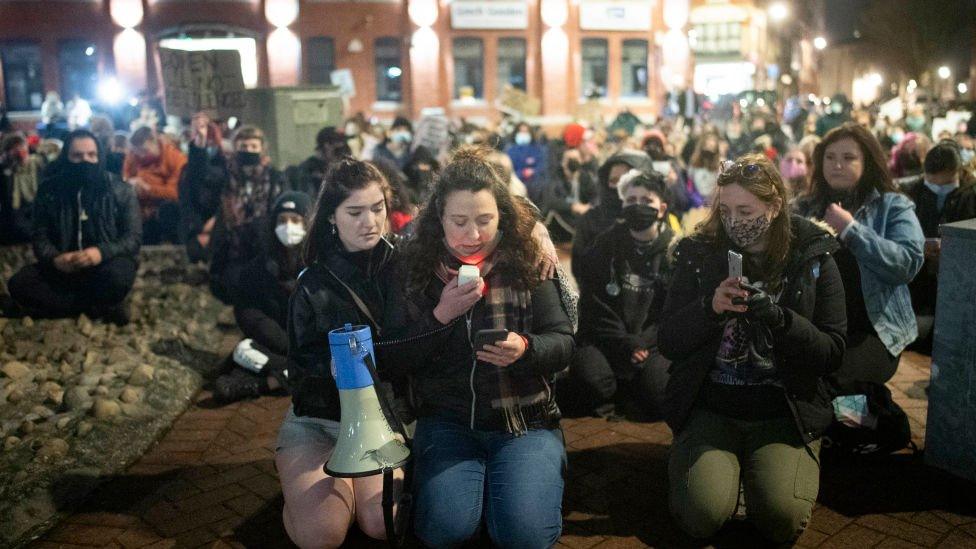
- Published27 January 2021
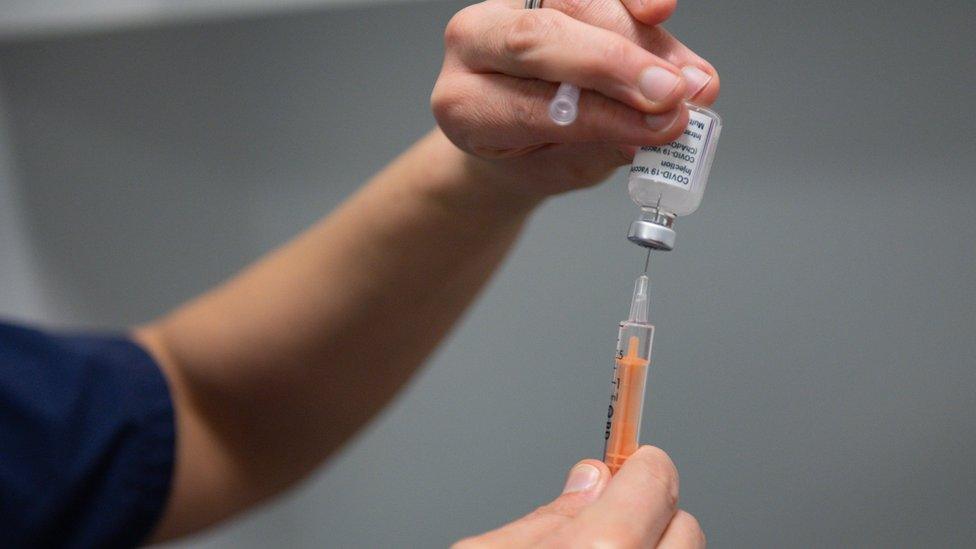
- Published28 January 2021
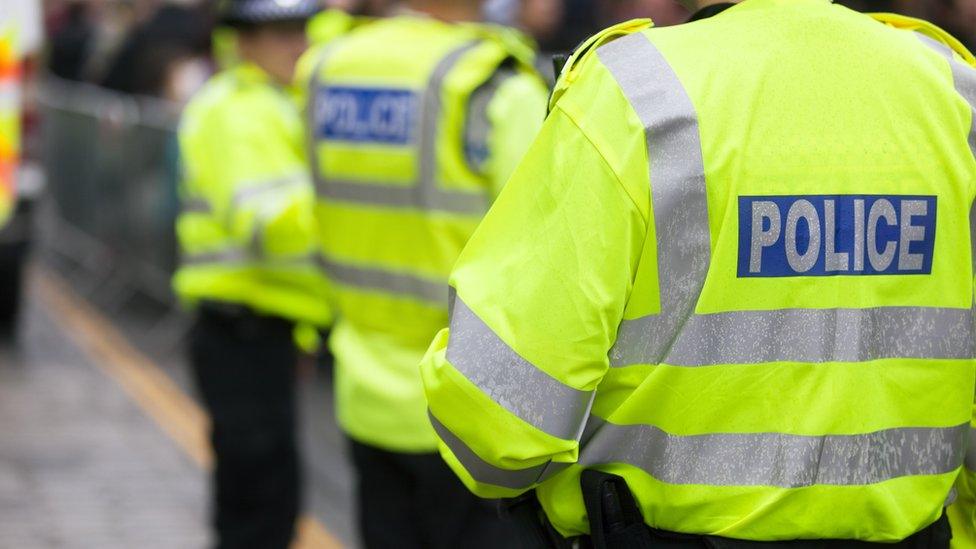
- Published24 October 2020
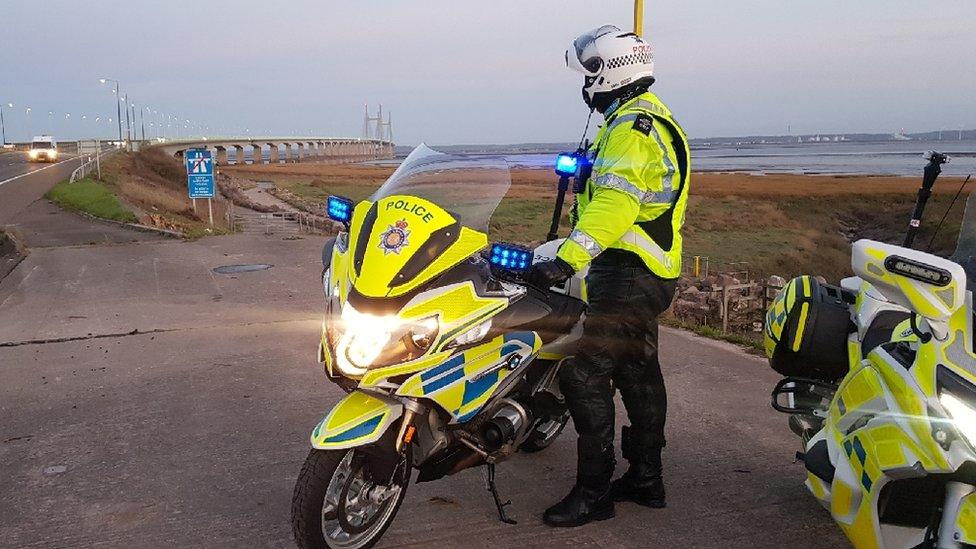
- Published17 May 2020
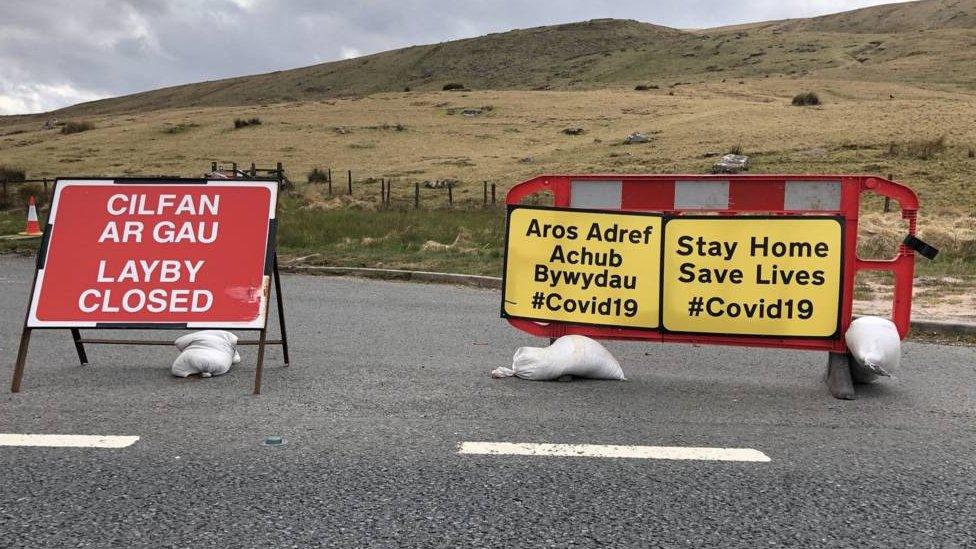
- Published16 January 2021
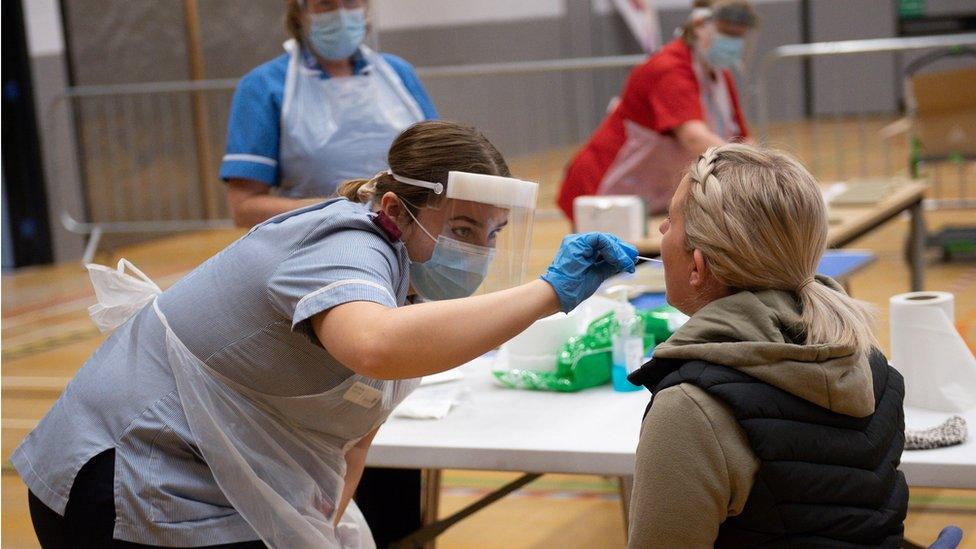
- Published4 February 2021
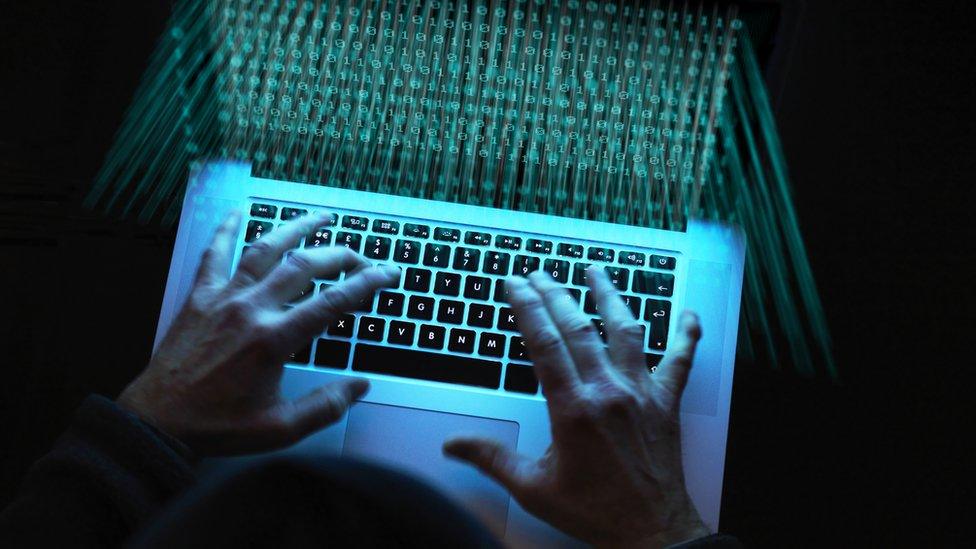
- Published1 January 2021
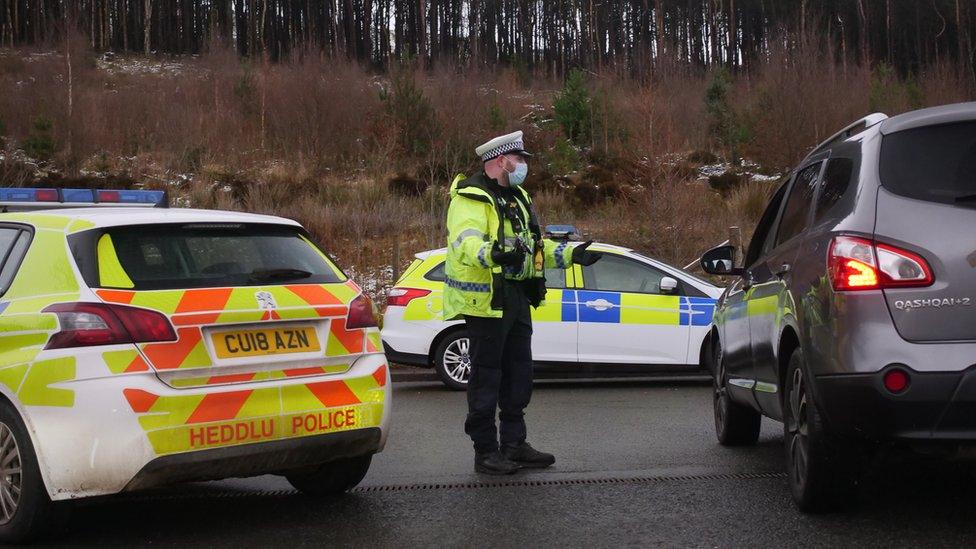
- Published22 January 2020
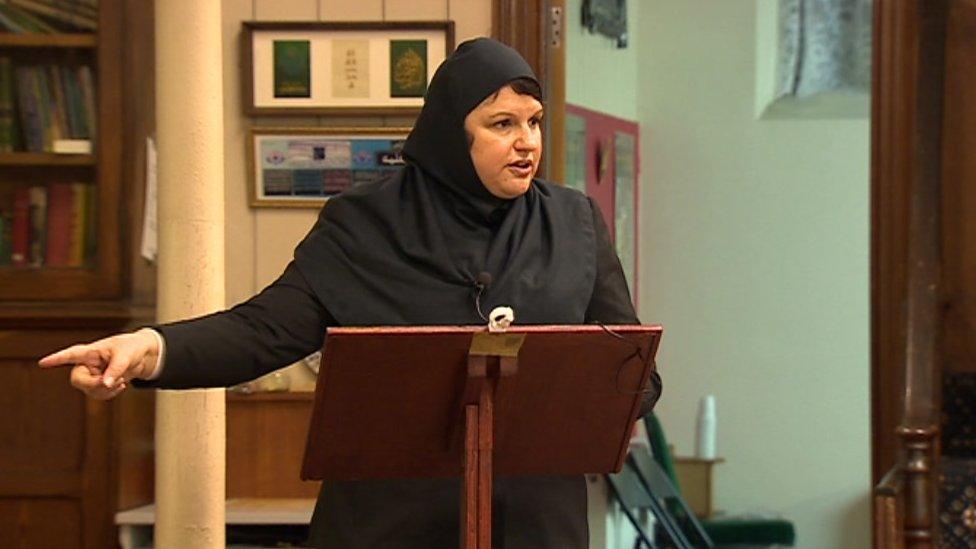
- Published21 December 2020
